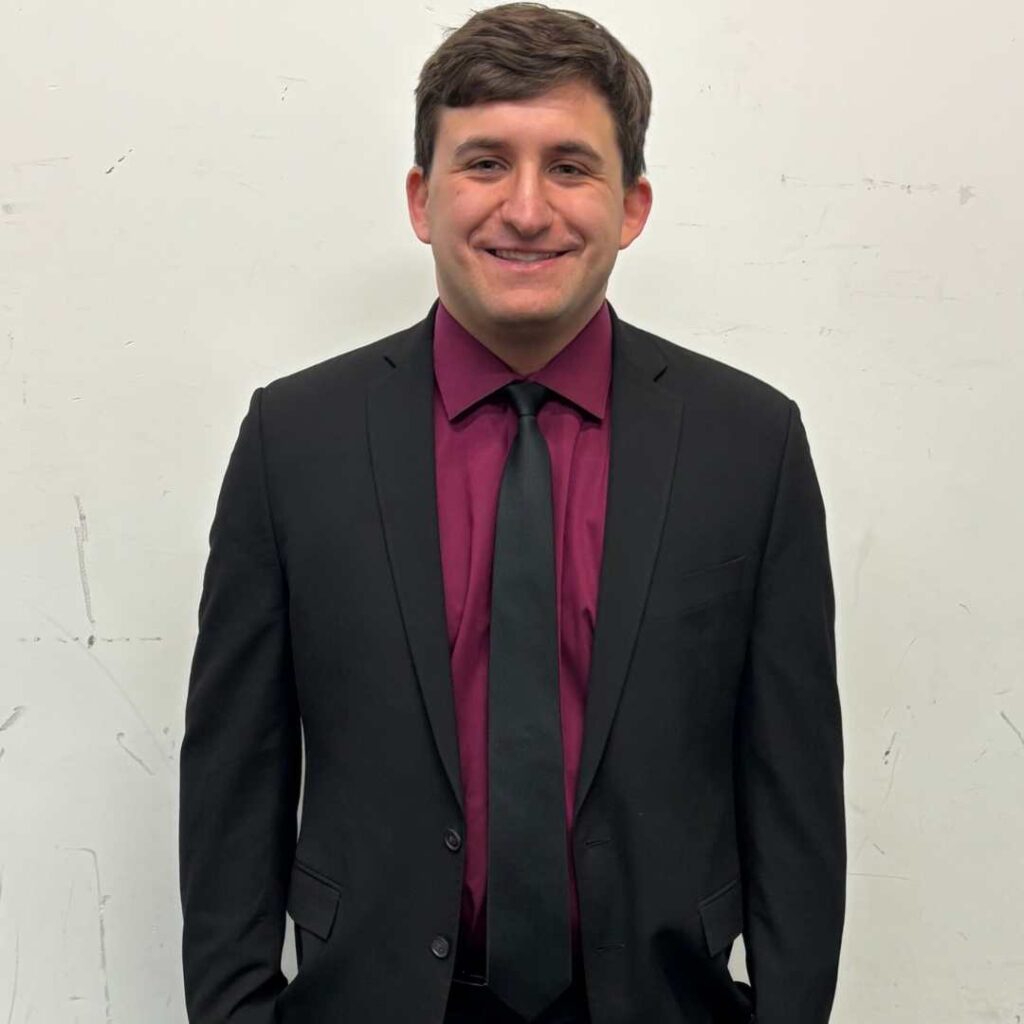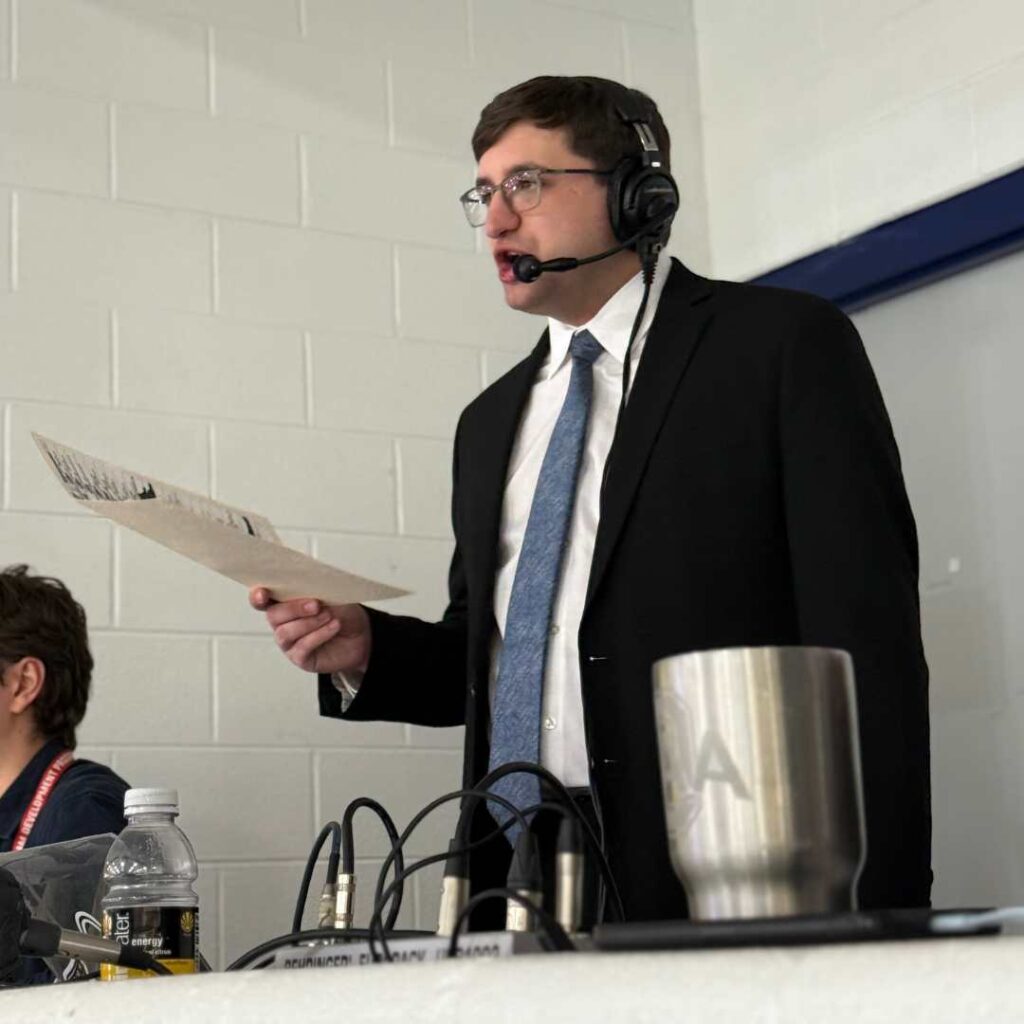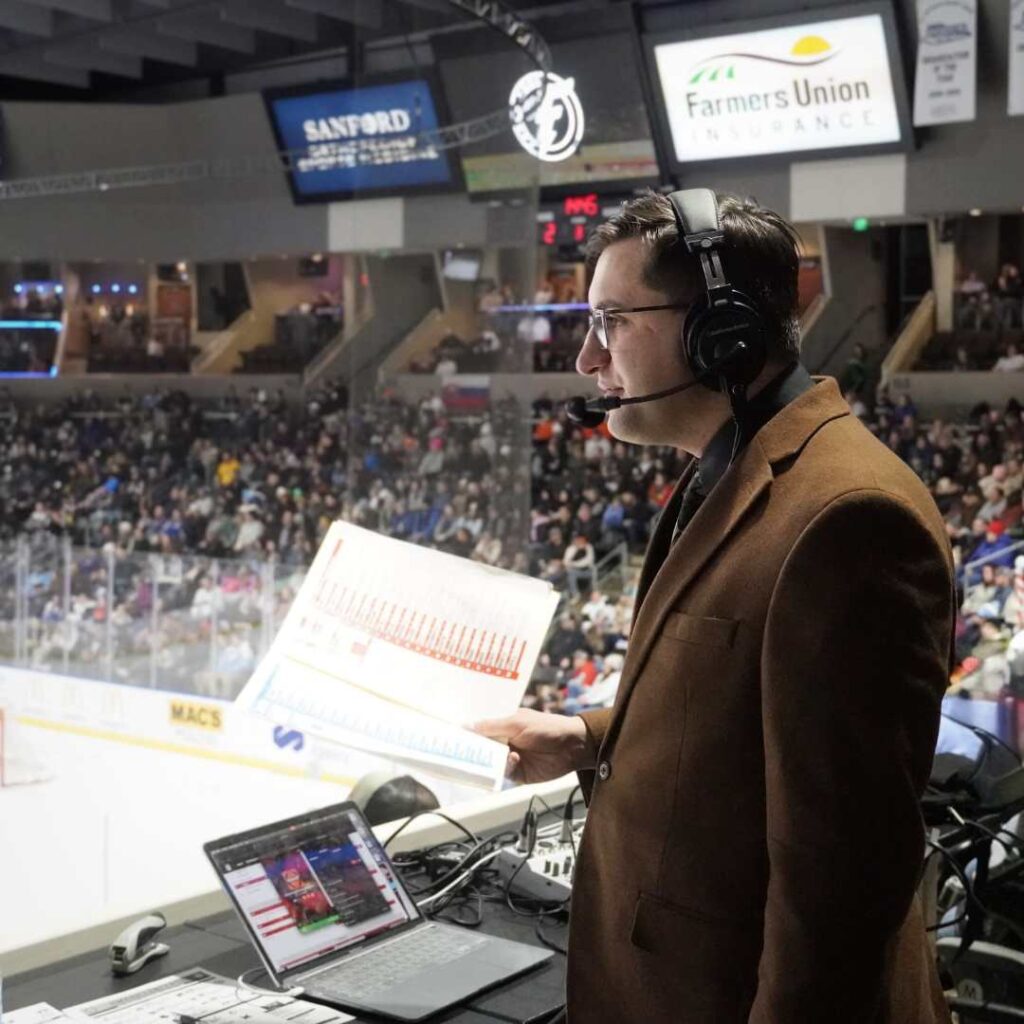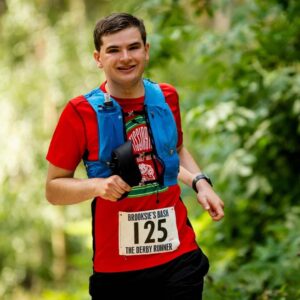Frank Zawrazky: The power of hyperfocusing in broadcast

After starting in the hockey talk-show business at the age of 16, Frank Zawrazky has since become one of the hardest-working play-by-play broadcasters in the industry, and the youngest in United States Hockey League (USHL) history.
Many who see the glitz and glamour of sports, the bright lights, and the noise from the crowd may assume it’s overly stimulating for someone with autism. But for the now 23-year-old Frank, the ice hockey matchday environment actually fuels him.
As the Director of Media Operations and play-by-play voice for the USHL’s Omaha Lancers, he is using his ability to hyperfocus to grow his career in sports broadcasting.
“I have ASD1, which was formerly known as Asperger’s, and it allows me to hyperfocus,” said Frank. “This hyperfocus ability allows me to dial in for hours at a time.
“It is a very high-intensity, cut-throat industry. You have to be on your best every second of every broadcast, you have to have all the information in front of you, and you have to do your research on all these different players.
“With autism, work is a special interest for me. I dive into it and that hyperfocus ability allows me to sit at a computer for three or four hours at a time.
“I’d like to consider myself the most passionate broadcaster in junior hockey.”
Frank graduated early from Loyola University, Chicago, in December 2023 through the Interdisciplinary Honors programme and obtained a Bachelor of Arts in Multimedia Journalism with a minor in Sport Management.
He had always wanted to be a broadcaster and used his experience on talk shows as a teenager to propel him into the industry.
“I started in the talk-show business when I was 16 and I really worked at that for a little bit.
“I knew I would use that as a springboard to go into play-by-play broadcasting, which is an acquired skill because you have to learn the ebbs and flows and the ups and the downs of commentary.
“Many people have the gift to speak well, but how are you able to channel that? It came naturally for me on the talk-show side, but it was about learning the finer points of broadcasting and translating that passion, that energy, that drive and the research into the play-by-play field to put on a good show every night.”


Several people have described their autism as a superpower, and while Frank certainly focuses on the positives his autism provides in sports broadcasting, he views autism in a different way.
“I describe it as a mutation from the X-Men because autism does have its drawbacks. Sometimes people aren’t good at nonverbal communication, sometimes people don’t get the little social cues.
“But there are also abilities that come with autism, like the hyperfocus, like the ability to really be passionate about something. Autism is not a curse, not necessarily a power, but something you have to learn how to live with and learn how to harness for yourself.
“I have the kind of autism where I need input constantly, so the lights and the sounds in the hockey arena actually help charge my social battery. It is the opposite to what a lot of people think autism is.
“I feed off of that environment going into the broadcast so that I’m already at a high-frequency energy when I’m going on air to commentate.”
It’s not been a completely easy ride for Frank, though. His determination to reach the top ensured he broke through the challenges he faced, especially during high school, and took professional feedback in his stride.
“From a career standpoint, I started when I was really young and it was hard to get people to take me seriously as a high school student.
“I was calling hockey players and agents every day during my lunch period. I was trying to get interviews with National Hockey League players, and it was a struggle for some people to take me seriously because I was a teenager, but I knew that this was the path I wanted to go upon.
“From an autism perspective in the broadcast booth, I wouldn’t even call it a barrier. It was more of an adjustment.
“As one of my mentors put it, ‘Frank, you can’t have your hair on fire every second
you are broadcasting because no one will take you seriously.’ And that was the biggest
challenge for me – knowing when to completely unload the fire hose and get excited, and when to stay calm.
“That is a grey area, and sometimes autistic people struggle with the grey areas. Broadcasting has helped teach me those grey areas in a natural setting, in an experiential learning environment.”
Expanding on the experience that being in the broadcast industry has given him, Frank believes the clubs he has been involved with have been instrumental in his development as a commentator.
“I’m really lucky that the clubs I’ve been a part of have been incredibly open, and they have been willing to let me use my platform for an autism night.
“Everybody’s been so supportive here in Omaha, and were at West Bend last year. They don’t look at me differently.
“I’m on the spectrum but I don’t want to just be the autistic broadcaster. I want to be a broadcaster who is really good at what he does, who just happens to have autism and uses the talents of autism to enhance the broadcast.
“My short-term goal is just to keep getting better as a broadcaster. I had a good broadcast last night, but what do I need to improve upon going into the next game? What do I need to tone down? What do I need to ramp up?
“And that kind of scaffolding applies to my career too. Right now, I’m at the junior hockey level – one of the best, if not the best, junior hockey league in the world – and in seven or eight years’ time, I’d like to be in the National Hockey League.”


